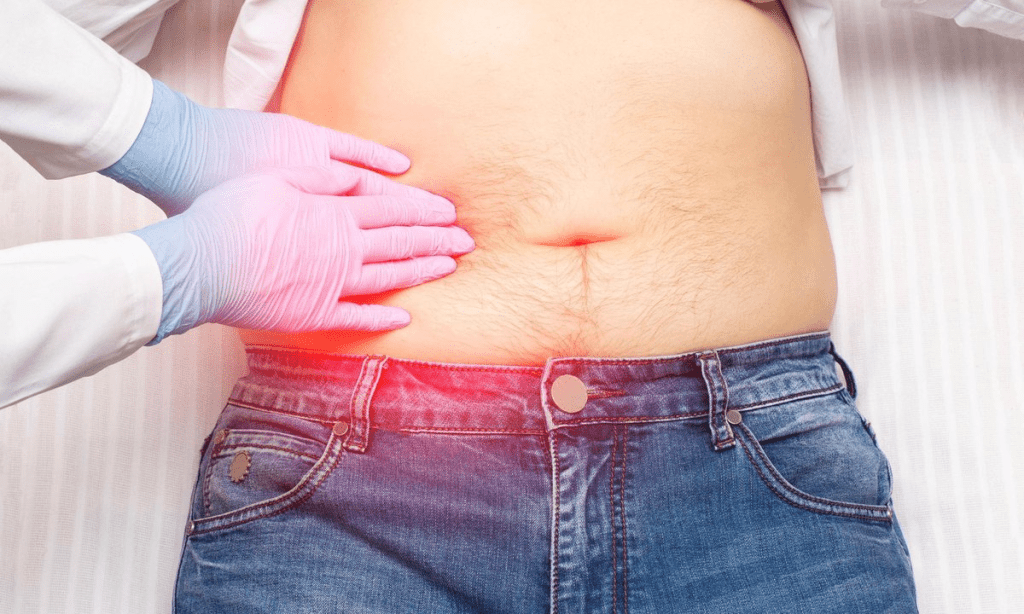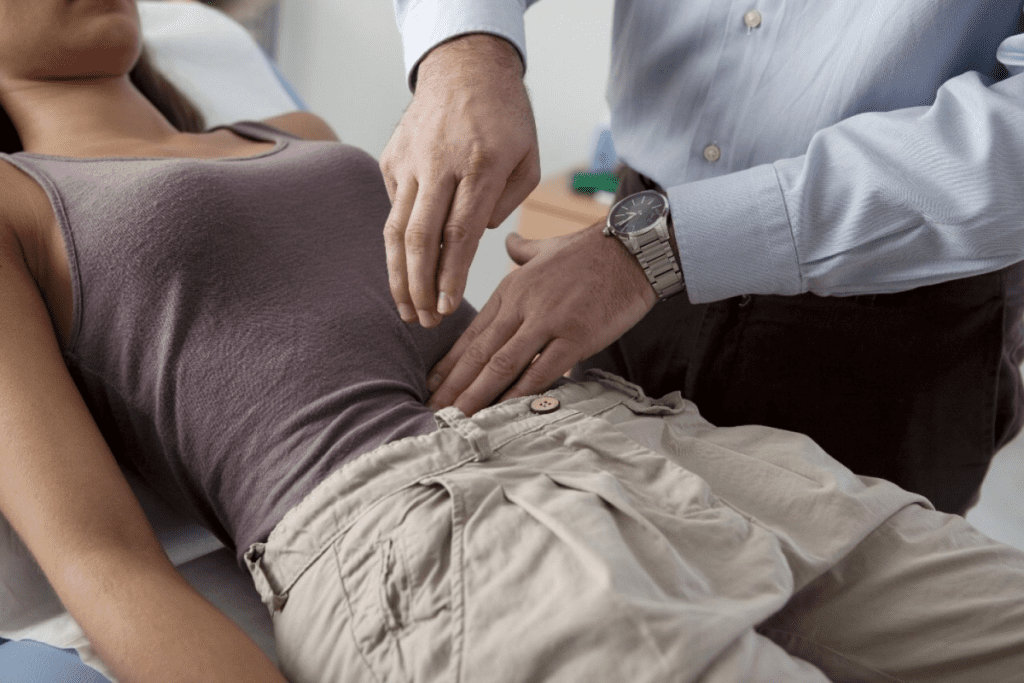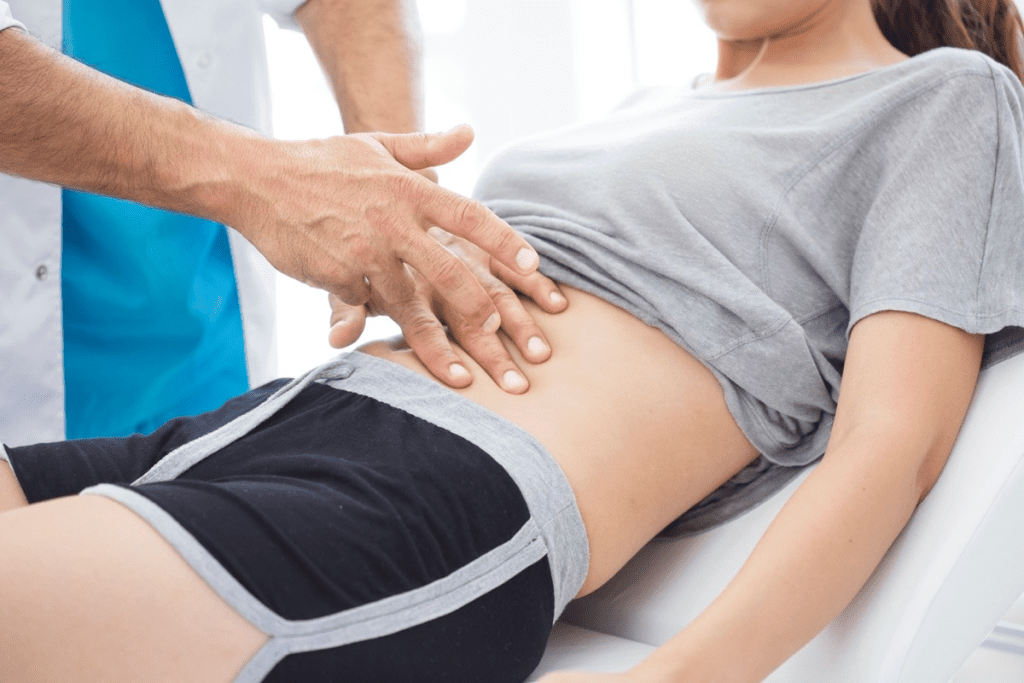Last Updated on October 31, 2025 by
Having urethroplasty can be scary, and knowing how long you’ll stay in the hospital helps. Thanks to new medical breakthroughs, hospital stays for this surgery are getting shorter.

Usually, patients stay in the hospital for 1 to 2.5 days after urethroplasty surgery. But, new studies show more doctors are letting patients go home the same day. This change is happening at top hospitals around the world.
Places like LIV Hospital are working hard to keep hospital stays short. They do this by improving surgery methods and how they care for patients after surgery. This way, they make sure patients get the best care without staying too long.
Urethroplasty is a complex surgery to fix or rebuild the urethra. It helps restore normal urine flow. This surgery is often needed for urethral strictures, which cause pain and trouble with urination.
Knowing about urethroplasty can be scary. But, it’s key to understand it well. We aim to give you all the info you need to make smart choices about your health.

Urethroplasty surgery fixes or rebuilds the urethra. The urethra is the tube that carries urine from the bladder out. This surgery is often needed for urethral strictures, which narrow the urethra and block urine flow.
The surgery removes the damaged part of the urethra and then fixes it. Sometimes, a graft from another part of the body is used. This graft can come from the mouth or genital area.
There are many types of urethral reconstruction surgeries. Each has its own use and benefits. Here are some common ones:
Urethra surgery, or urethroplasty, is needed for many conditions. These conditions affect urine flow. Here are some common ones:
Patients often wonder how long they’ll stay in the hospital after urethroplasty. The time can change based on the surgery’s complexity and the patient’s health.
Most people stay in the hospital for 1 to 2.5 days after urethroplasty. This time lets doctors watch the patient’s recovery, manage pain, and handle any immediate issues.
The usual stay for urethroplasty is 1 to 2.5 days. During this time, doctors keep an eye out for complications and manage pain. They also teach patients about caring for themselves after surgery, like managing catheters and attending follow-up visits.
More patients are being sent home the same day after some urethroplasty surgeries. This is for those with simpler procedures and no major issues during surgery. Going home sooner can lower infection risks and let patients recover in their own beds.
Benefits of same-day discharge include:
Studies show most urethroplasty patients are home within 1-2 days. The average stay is about 1.5 days, but it can vary. This depends on the surgery type and the patient’s health.
Knowing these stats can help patients prepare for their surgery and recovery. It’s key to talk to your doctor about your specific situation to get a better idea of your stay.

The time you spend in the hospital after urethroplasty can change a lot. We’ll look at what affects it to help you know what to expect.
The complexity of your urethroplasty affects how long you’ll stay in the hospital. More complex surgeries, like urethral reconstruction, might keep you there longer. This is to make sure you heal well and avoid problems.
For example, a simple surgery might let you go home the same day. But a more complex one might keep you for a few days. Studies show hospital stays for urethroplasty can be from 1 to 2.5 days, based on how complex the surgery is.
Your age and health also play big roles in how long you’ll stay. Older people or those with health issues might need more time and care. This can make your stay longer.
Experts say, “Having health issues can really affect how well you recover and how long you stay in the hospital.”
“The key to a smooth recovery lies in careful pre-operative assessment and post-operative care,” suggests a renowned urologist.
Complications during or after surgery also affect your stay. Issues like infections, bleeding, or reactions to anesthesia need extra treatment. This can make your stay longer.
But, quick medical action can sometimes fix these problems. This helps keep your recovery on track. It’s important to follow your doctor’s instructions closely to avoid these issues.
Knowing these factors helps you prepare for your recovery. It tells you what to expect during your hospital stay after urethroplasty.
Getting ready for urethroplasty involves several important steps. These steps can greatly affect your hospital stay and recovery. We’ll help you through these steps to make sure you’re ready for your hospital visit.
Before your surgery, you’ll have pre-surgical talks and tests. You’ll get a full medical check-up, imaging tests, and talks with your healthcare team. They’ll explain the surgery and what you can expect.
These talks are key to getting you healthy before surgery. They also help address any worries you might have.
Choosing the right things to pack for your hospital stay can really help your comfort and recovery. Here are some must-haves:
It’s also wise to leave valuable or unnecessary items at home. This way, you won’t risk losing or damaging them.
It’s important to know about your insurance and the costs of urethroplasty. We suggest checking your insurance policy and talking to your provider about any questions or worries.
Key things to think about include:
Being informed and prepared can help reduce financial stress. This way, you can focus more on getting better.
During your urethroplasty recovery, the hospital experience is key. It helps ensure a smooth and successful outcome. Our medical team is dedicated to providing top-notch care during this critical period.
After your surgery, we watch your vital signs closely. Immediate post-operative care is vital to catch and manage any issues early.
Effective pain management is a key part of your care. We use a mix of medicines and techniques to keep you comfortable. This helps you feel better during your recovery.
Catheter management is vital after urethroplasty. Our team ensures your catheter is cared for properly. This helps prevent complications and aids in healing.
We monitor and manage your catheter based on your needs. You’ll learn how to care for it when you go home.
Rest is important after surgery, but mobility and activity are also key. They help prevent complications and aid in recovery. Our team will guide you on how much activity is safe during your stay.
Knowing what to expect in the hospital after urethroplasty helps prepare you for a successful recovery. Our team is committed to giving you the best care and support throughout your treatment.
Urethroplasty discharge criteria help make sure patients are ready to go home. It’s important for a smooth recovery.
To be ready for discharge, patients must meet physical milestones. These include:
Effective pain management is key. We make sure patients are comfortable before they go home.
For same-day discharge, specific steps are needed. These include:
Pre-operative education is vital. We give detailed guidance for a smooth recovery.
After discharge, patients must follow certain instructions. These include:
We give detailed post-discharge instructions. Following these helps avoid complications.
Understanding discharge criteria and following instructions is key. It ensures a safe and successful recovery after urethroplasty.
Knowing how long you’ll stay in the hospital and what to do after urethroplasty is key. We’ve looked at what affects your hospital time, the move towards leaving the same day, and important steps after you go home.
By learning about urethroplasty and urethral reconstruction, patients can feel more in control. A good plan for your hospital stay and recovery can really help your success.
The time you spend in the hospital can change based on your surgery, health, and any issues that come up. Being ready and informed can help avoid problems and make your recovery easier.
Urethroplasty surgery is a complex procedure. It involves fixing or rebuilding the urethra. This is often needed for issues like urethral strictures or injuries. We use different methods, like excision with primary anastomosis and grafting with buccal mucosa.
The hospital stay after urethroplasty varies. It depends on the procedure’s complexity and the patient’s health. Stays can range from a few hours to 1-2.5 days. Some patients might be discharged the same day.
Several factors affect hospital stay length. These include the procedure’s type and complexity, the patient’s age, and health. Complications can also extend the stay.
Same-day discharge after urethroplasty is becoming more common. It reduces the risk of infections and allows for quicker recovery at home. But, it requires careful patient selection and following specific discharge protocols.
To prepare, attend pre-surgical consultations and testing. Pack essential items for your stay. Also, understand your insurance and cost considerations.
Expect immediate post-operative monitoring and pain management. You’ll also receive guidance on mobility and activity. Our team will ensure a smooth recovery.
To be discharged, patients must meet physical milestones like stable vital signs and adequate pain management. We provide post-discharge instructions for a successful recovery at home.
Healing time for the male urethra after urethroplasty varies. It usually takes several weeks to a few months. We offer personalized guidance and support during recovery.
Urethral reconstruction involves repairing or rebuilding the urethra. Techniques include excision with primary anastomosis or grafting with buccal mucosa. The approach depends on the condition and patient needs.
Urethroplasty is generally safe but can have complications. These include infection, bleeding, or urethral stricture recurrence. We take precautions and closely monitor during recovery to minimize risks.
MacDonald, S. A., Hudson, B. E., & Cain, M. P. (2017). Research finds no significant differences in complications for outpatient versus inpatient anterior urethroplasty. Urology, 103, 45-51. https://medicalupdate.pennstatehealth.org/urology-surgery/outpatient-vs-inpatient-anterior-urethroplasty
Testa, G. (2021). A comparison of catheterization duration ” three weeks versus two weeks after bulbar urethroplasty. Scandinavian Journal of Urology, 55(4), 313-316. https://medicaljournalssweden.se/SJU/article/view/15054
Regina, B. T., et al. (2021). Endoscopic urethrotomy versus open urethroplasty for men with bulbar urethral stricture: the OPEN randomized trial cost-effectiveness analysis. BMC Urology, 21, 50. https://bmcurol.biomedcentral.com/articles/10.1186/s12894-021-00842-1
Perioperative outcomes and trends of surgical correction of male urethral strictures: Results from the GRAND study. (2024). BMC Urology.https://www.ncbi.nlm.nih.gov/pmc/articles/PMC11032089/
Impact of short-stay urethroplasty on health-related quality of life and patient’s perception of timing of discharge. (2022). Advances in Urology.https://www.doaj.org/article/9f3d7b2f71e14b91a5cb84ff0d67bfa9
Subscribe to our e-newsletter to stay informed about the latest innovations in the world of health and exclusive offers!